Toddler:
Ages 18 months - 24 months.
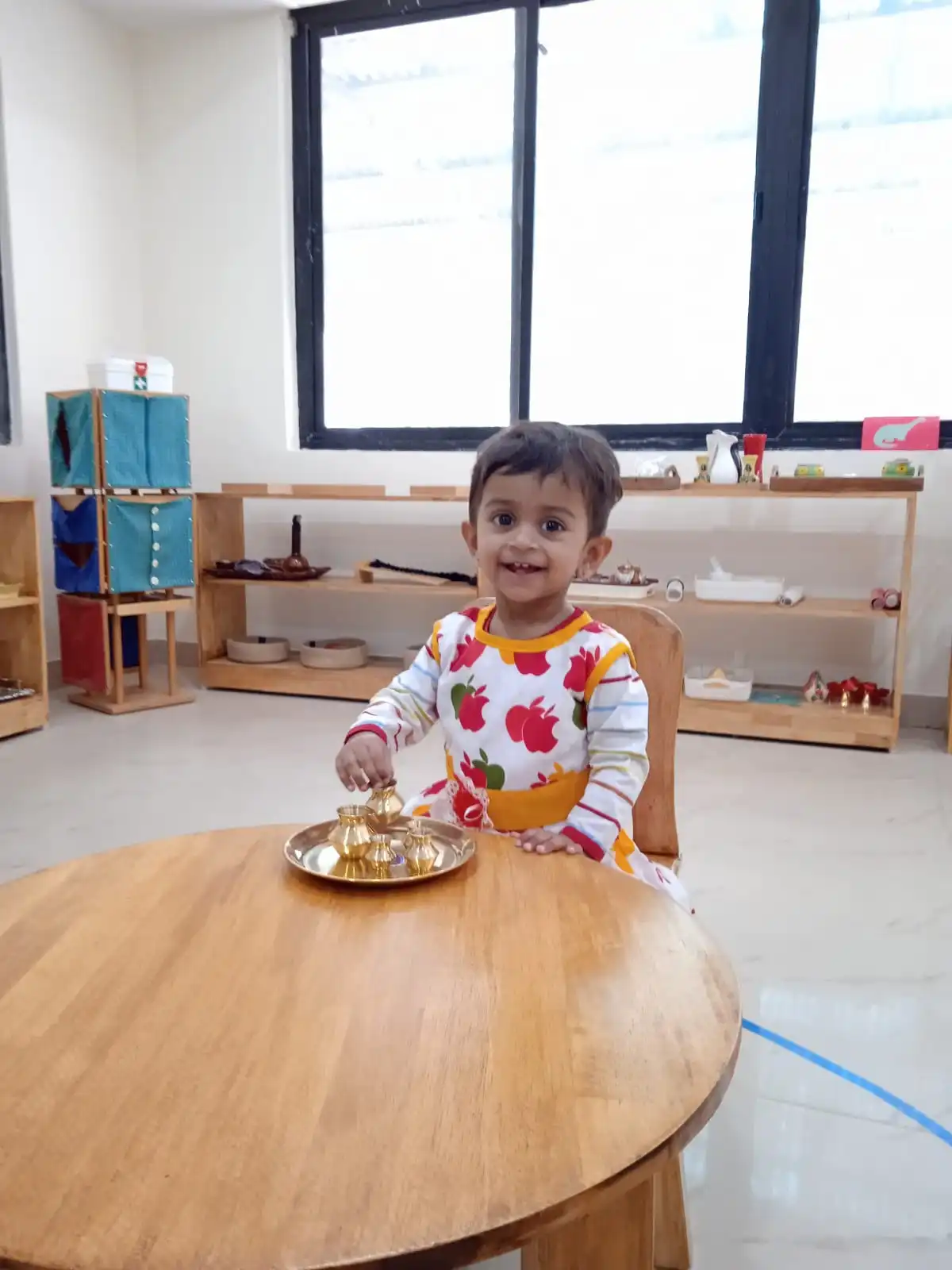
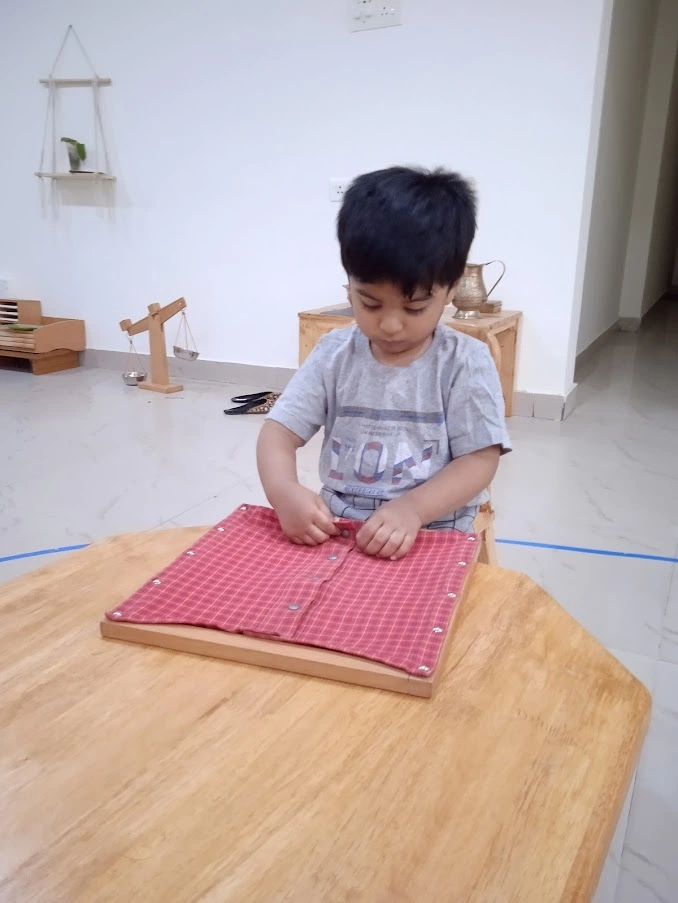
Our Toddler classroom is a nurturing environment where younger children have the freedom to safely explore and learn through discovery.
The space is organized, clean, and uncluttered with child-sized furniture.
The atmosphere is positive, supportive, and non-competitive, which gives them an obvious joy in 'work' which builds self-confidence, concentration, and critical thinking skills.
The environment is language-rich, with adults using proper nomenclature rather than baby talk so that the children are exposed to and develop a broad vocabulary.
Based on daily observations, teachers introduce new materials and activities that develop curiosity and stimulate learning.
These Learning activities include:
"Education must begin at birth."
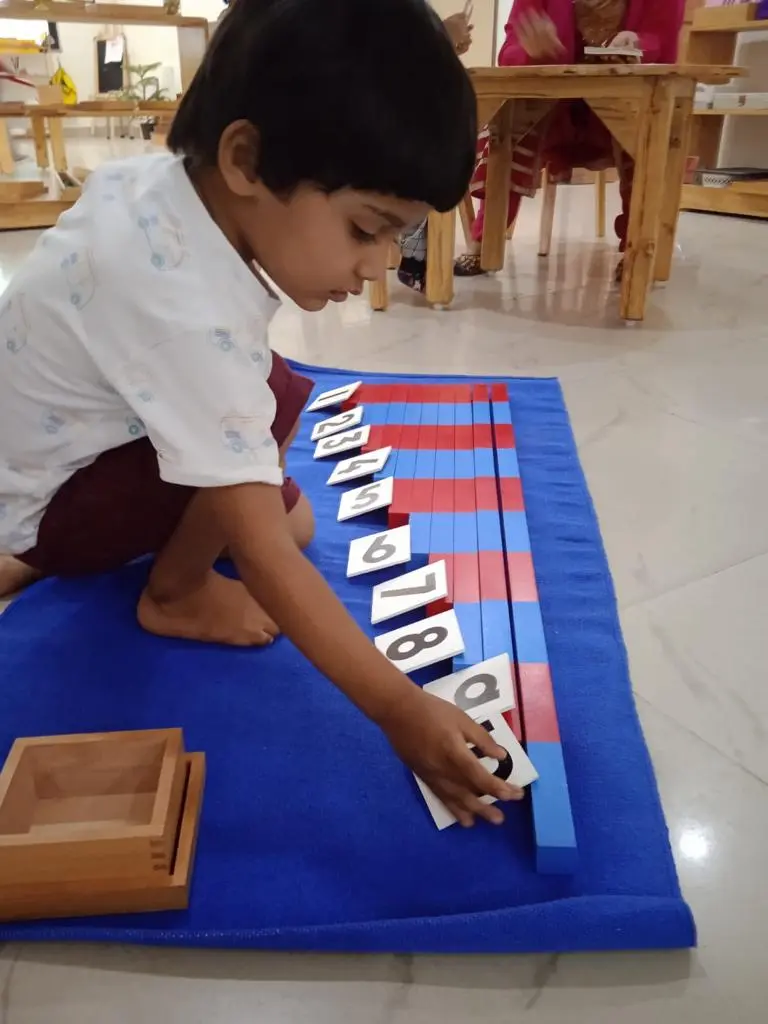
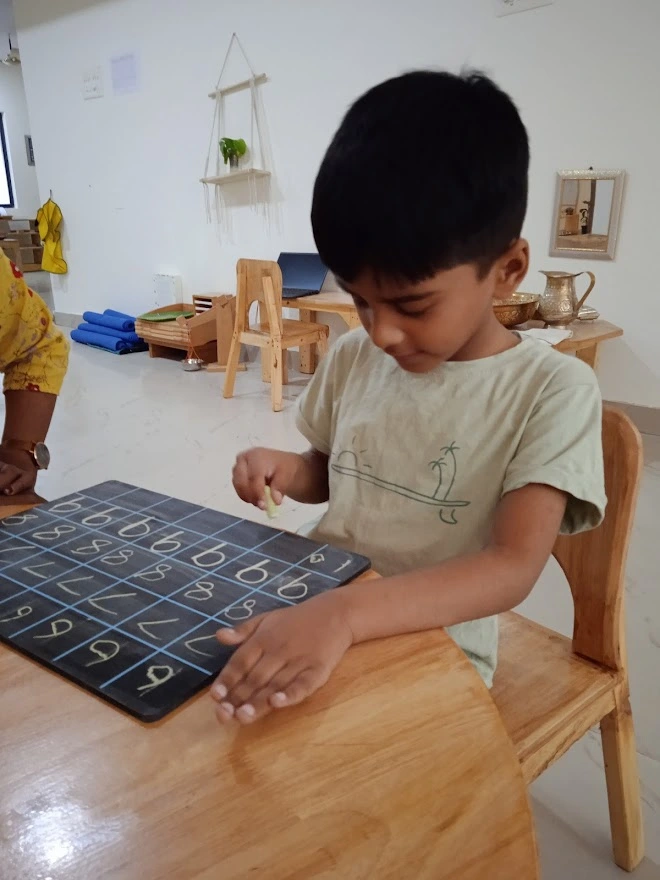
The Montessori primary program offers a unique, mixed-age classroom environment, for children approximately 3 to 6 years old.
Our environment is a carefully prepared, purposeful, and aesthetic learning space for self-directed activities, allowing for an inner desire to learn. A child, three years of age, seeks to become independent. Often one hears the young child say, “Let me do it myself!” Children also want to imitate adults around them. They need to practice self-help skills that are necessary to develop into independent individuals.
Teachers guide children by offering new challenges within work from time to time, ensuring the child's interest to learn is kept alive. Each area of the Montessori classroom has specific goals in supporting the child to become an integrated individual.
Practical Life activities fall into four main categories: care of self, care of the environment, control of movement, and grace and courtesy.
These include activities such as sweeping, pouring, washing dishes, setting the table, and sewing builds self-confidence in the child's work and develop their concentration, order, coordination, and independence. These are activities that the child usually sees happening around him in his day to day life. Grace and courtesy lessons are designed to help the children feel comfortable with others and refine their social graces.
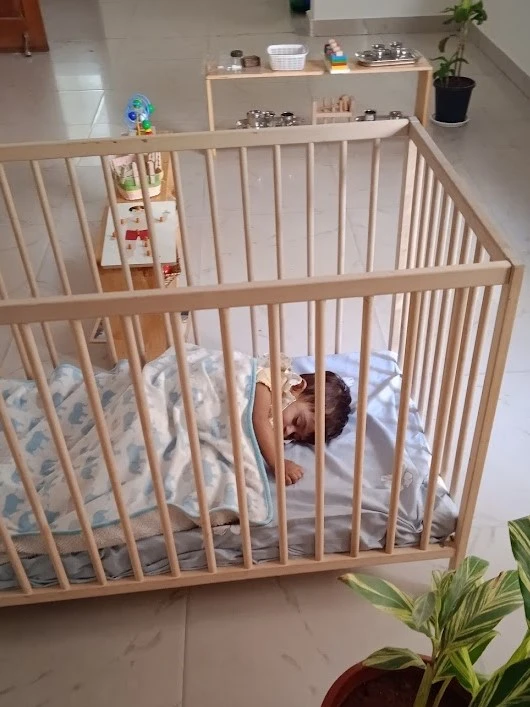
Managing your home and work is a daunting task. Daycare can give you that peace of mind you have been longing for. We help parents focus on their daily routine worry-free, as they can rest assured that their children are in safe hands by providing a safe, hygienic, and enriching environment for children ages 1.5 to 8 years old. We offer an extensive program after school and planned activities to keep them busy with age- appropriate grouping.
Timings: 9:00 am to 3:30 pm.
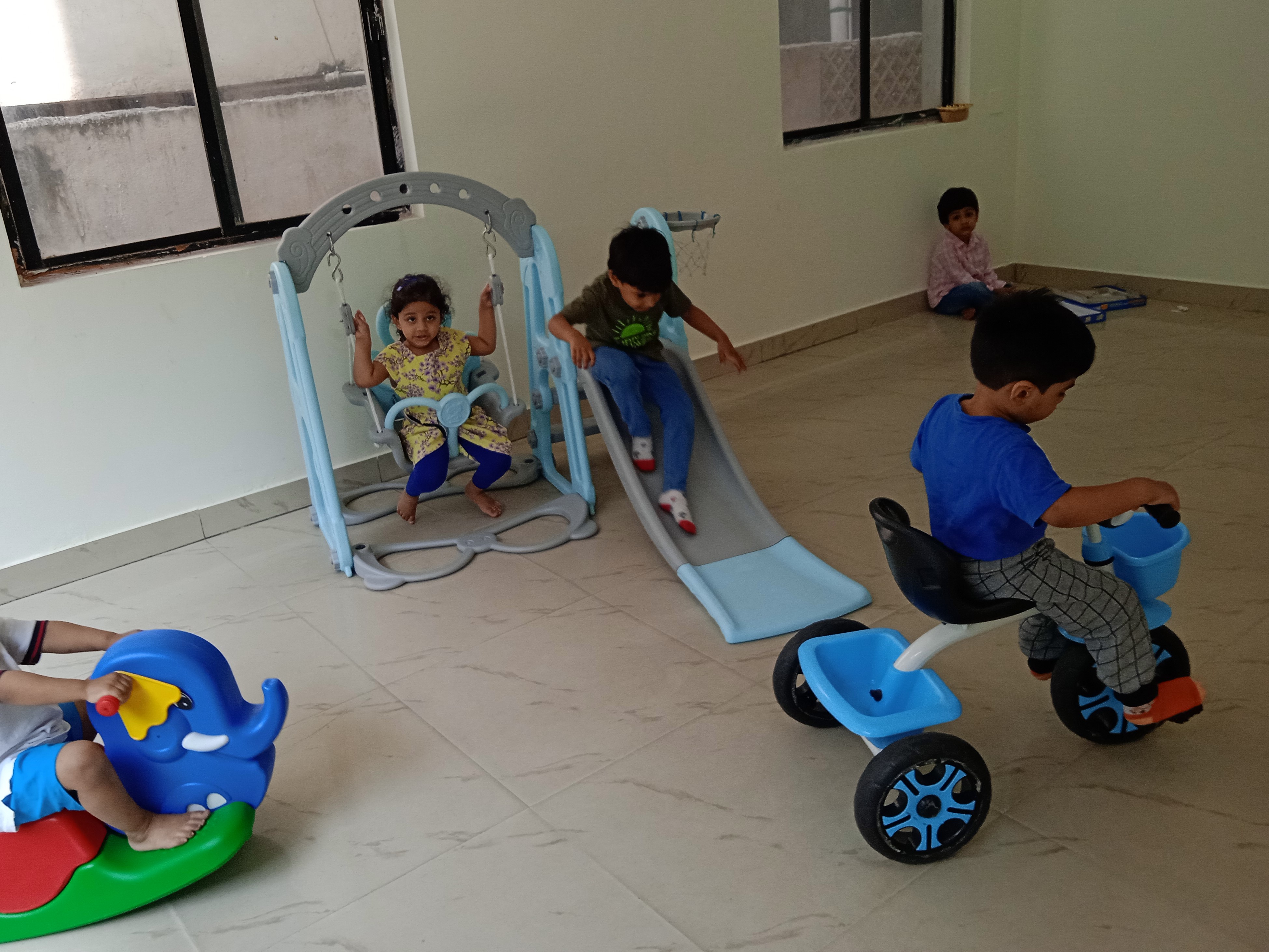
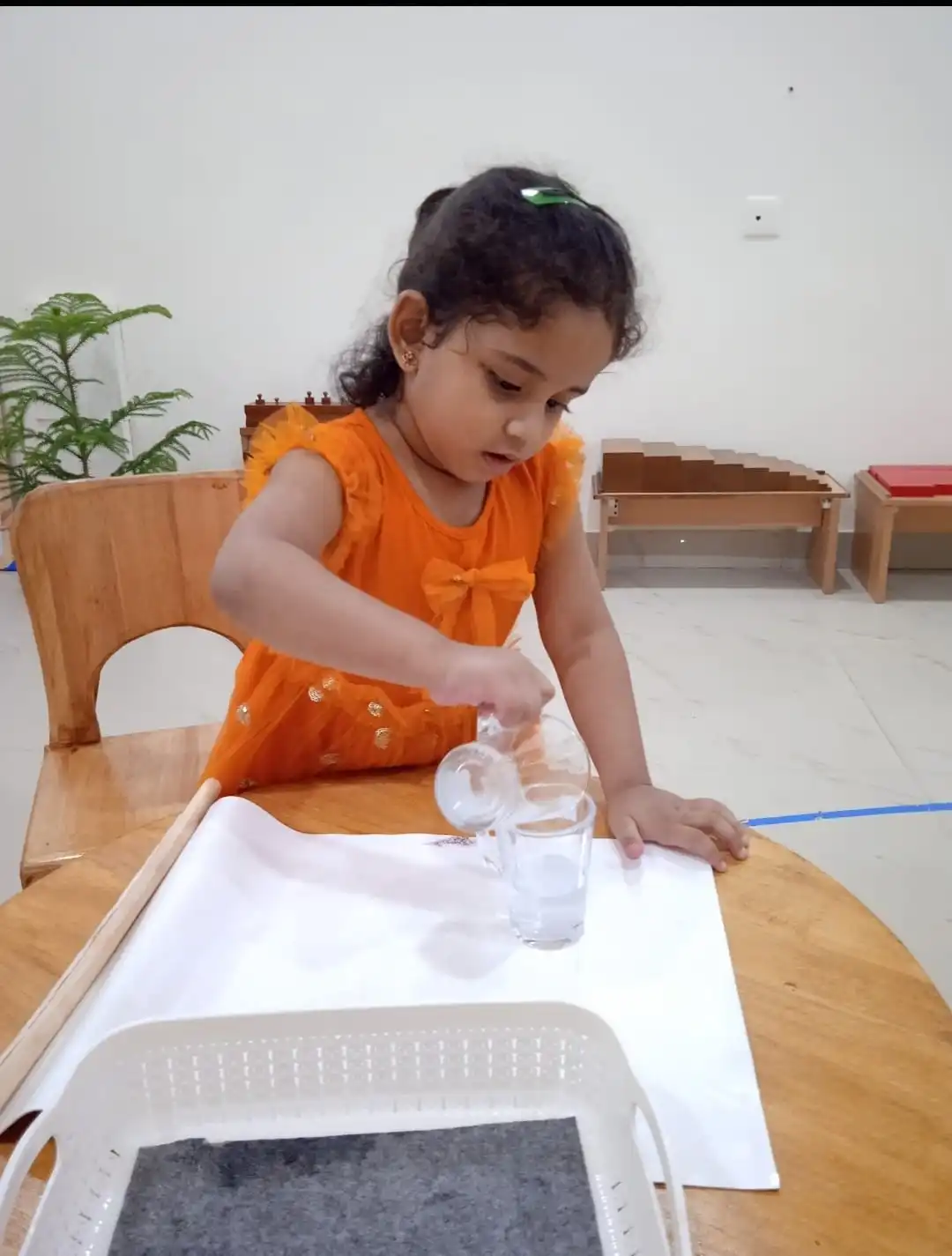
Summer learning need not be boring!!! As we provide fun and engaging activities for your child. While they are having fun and exploring their own interests, they are also increasing their own capacities for learning, teamwork, problem-solving, knowledge, and self-awareness. Our Summer camp lasts for four weeks and is eligible for 3 years to 12 years old.